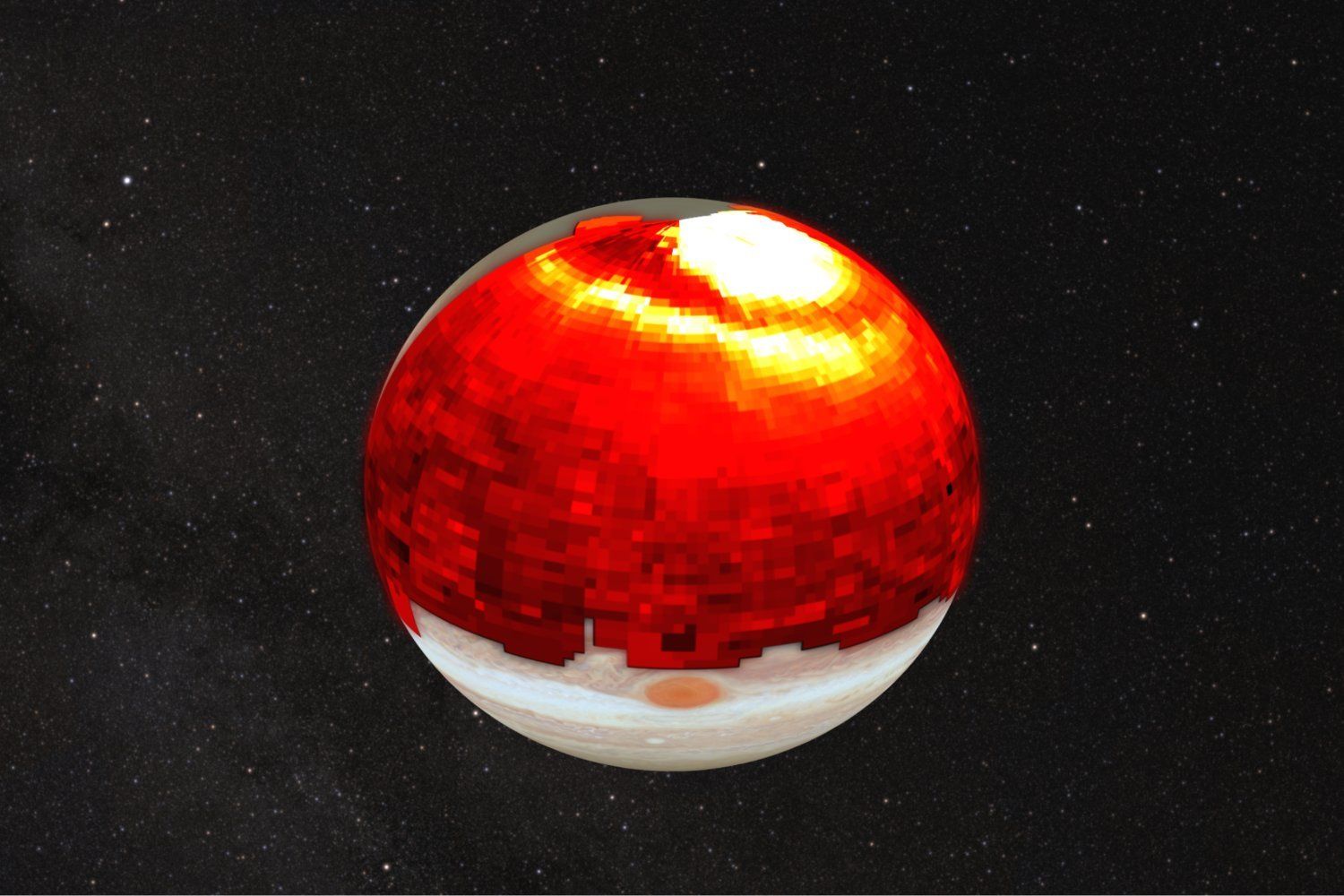
Solar Wind Triggers Huge Temperature Spike on Jupiter
Even the colossal planet Jupiter, known for its intense storms and extreme temperatures, experiences a delicate interaction with solar winds. Recent research has documented how bursts of energy from the Sun significantly impact Jupiter's atmosphere, leading to dramatic temperature increases.
Solar Wind Compression
A team of researchers has observed solar winds compressing Jupiter's magnetosphere, resulting in a temperature surge of 300 degrees Fahrenheit (150 degrees Celsius) in the planet's atmosphere. This event, documented in Geophysical Research Letters, marks the first time scientists have captured such a phenomenon on Jupiter.
According to James O'Donoghue, a planetary scientist at the University of Reading, these solar wind events occur multiple times each month. The impact of a fast solar wind stream on Jupiter's magnetosphere triggers intense auroral activity, releasing substantial heat into the atmosphere. This leads to the expansion of the atmosphere around Jupiter's poles and generates a thermal wave that spans a distance 12 times the diameter of Earth.
Data from the Keck II telescope and the Juno spacecraft, which was fortuitously positioned within Jupiter's magnetosphere, enabled the team to witness this event. Juno's location allowed it to measure the compression of the magnetosphere directly.
O'Donoghue noted that similar heating events have only been observed on Earth, but on a much smaller scale. He also speculated that similar phenomena might occur on Saturn, Uranus, or Neptune, although they have not yet been observed. These compression events are relatively rare, occurring a couple of times each month depending on solar activity.
Understanding Space Weather
Mathew Owens, a researcher at the University of Reading and co-author of the study, emphasized the accuracy of their solar wind model in predicting disturbances in Jupiter's atmosphere. This research is crucial for improving our understanding of space weather and protecting Earth from potentially harmful solar events.
The research underscores the vulnerability of planetary atmospheres to the activity of their host stars. Bursts from the Sun can significantly alter the atmospheric dynamics of planets, driving winds that redistribute energy across their surfaces.
This discovery highlights the dynamic nature of our Sun and the gaps in our knowledge of solar system processes. Continued observations of both the Sun and the planets are essential for gaining a more comprehensive understanding of our solar system and its place within the broader universe.
Source: Gizmodo